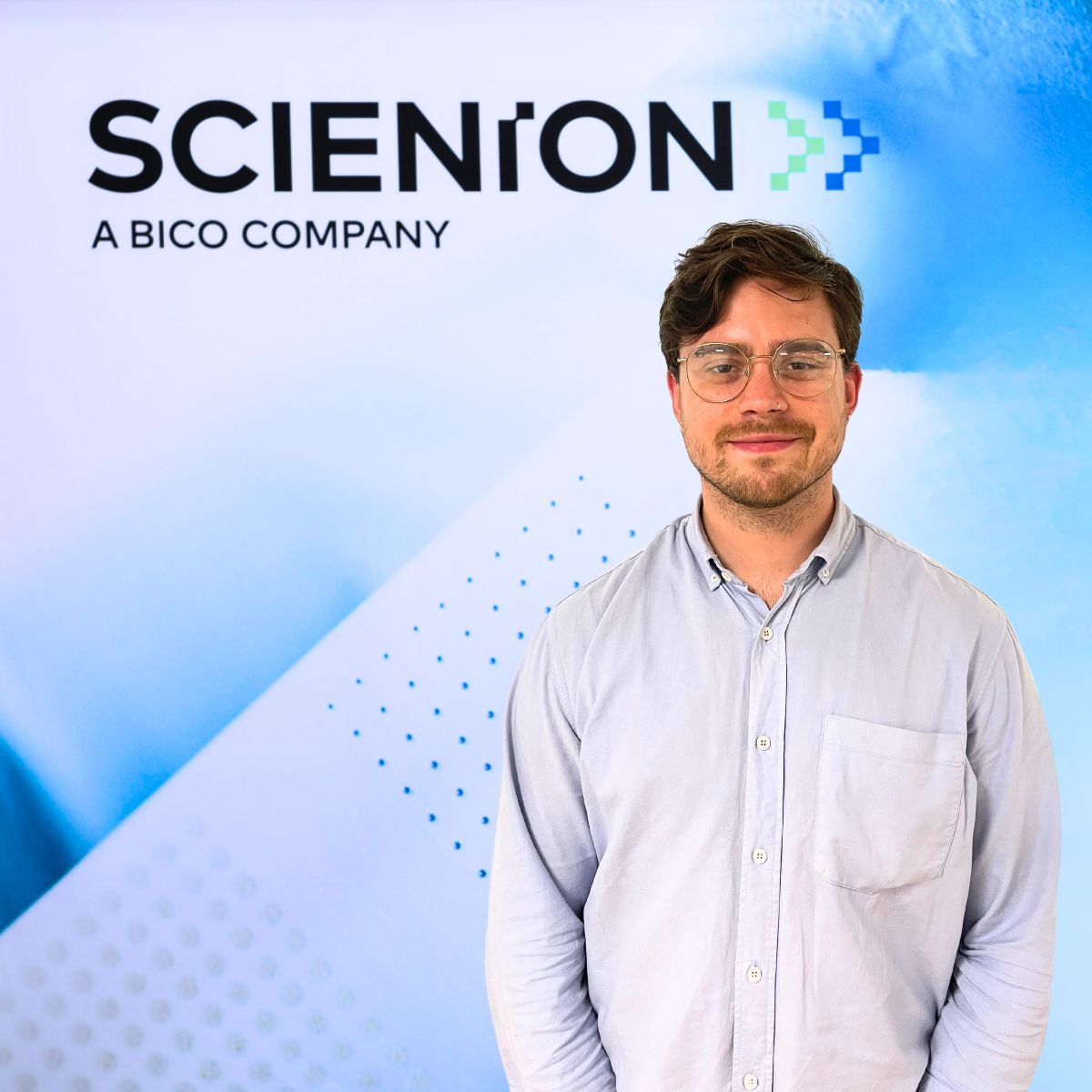Get to know SCIENION: Wesley Cherry, Contract Manufacturing Manager

SCIENION operates from its headquarters in Berlin (Germany) and subsidiaries in Phoenix, Arizona (USA), Portsmouth (UK), and Lyon (France). The UK location serves as a global hub for Contract Manufacturing Services. Wesley Cherry is a Master’s graduate from the University of Greenwich and University of Sussex with a biology background and together with his team supports Contract Manufacturing projects.
Q: What do you do at SCIENION?
A: I am the Contract Manufacturing Manager at SCIENION UK. In our Portsmouth facilities, we run various customer R&D and IVD manufacturing projects, including single cell applications.
Q: How long have you been part of the SCIENION team?
A: I have been a part of SCIENION UK for the past 2 years, joining in May 2021 as a Precision Dispensing Technician.
Q: How do you approach contract manufacturing in your day-to-day?
A: Communication, communication, communication! It is vital in manufacturing to keep up communication not just with customers, but also with my team. I provide regular updates on production to the customers, which stems from my fantastic team’s communication in providing me the information coming straight off the manufacturing line. This involves consistent stock monitoring and a close partnership with our supply chain department, ensuring all materials are in full stock for the manufacturing forecasts.
We pride ourselves on being able to bring projects from Contract Development into Contract Manufacturing, where the customer can develop the projects with us in-house, moving into pilot-scale manufacturing with scale-up manufacturing at any point. In addition, scaling down manufacturing projects also plays a large part. We have the flexibility here on manufacturing to scale up and scale down over a period of time to suit the customer’s needs.
Quality, of course, plays a huge part in the manufacturing process, ensuring that all products sent out the door conform to quality standards. This is completed through various quality control steps in manufacturing processes, as well as in documentation for full traceability.
Q: What do you think is frequently underestimated while developing a test?
A: From the test developer perspective it’s important to, as objectively as it gets, asses from the beginning whether the idea can be turned into a viable product or will always remain an R&D project. Many theoretically great ideas never came to fruition because the solution was impossible to scale up. It’s important to perform feasibility studies and ensure feasibility before jumping into deep waters.
And from my perspective, the importance of forecasting is frequently underestimated. Certainly, receiving forecasts from customers as far in advance as possible is crucial for resource planning and enabling for completion of manufacturing on time. This also is heavily linked to scaling the production up (and down) when necessary. It’s important to have some time buffer.
Q: Did anything surprise you when you started?
A: Absolutely! The variety of the projects and test formats we get to work with. It’s incredible to see so much technological advancement for more personalized and point-of-need diagnostics taking place. We work with lateral flow membranes, silicon wafers, microplates, microfluidic cartridges, biosensors, microcantilevers. The fact that it’s a reality and not a sci-fi anymore, could for sure be surprising to many.
